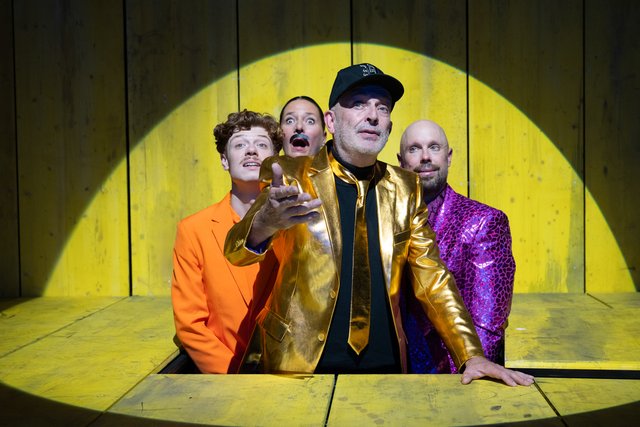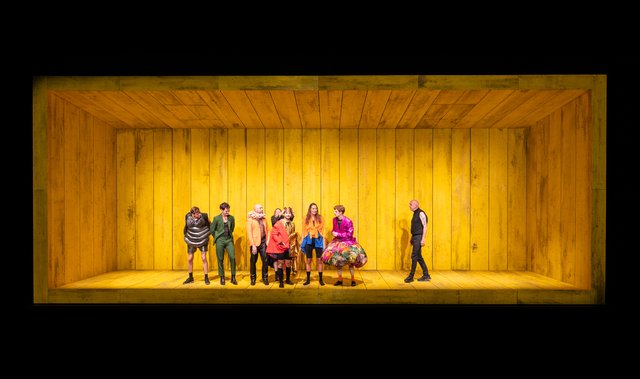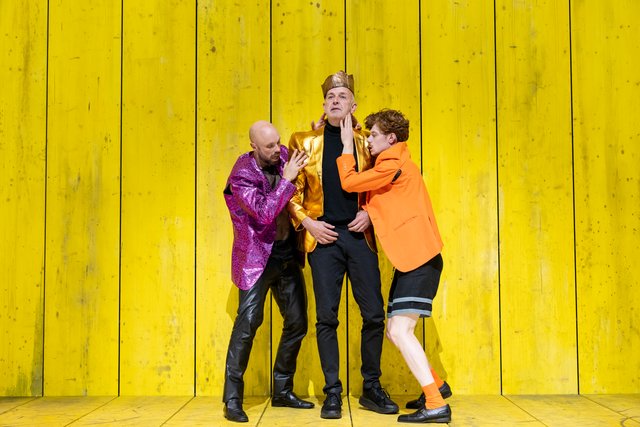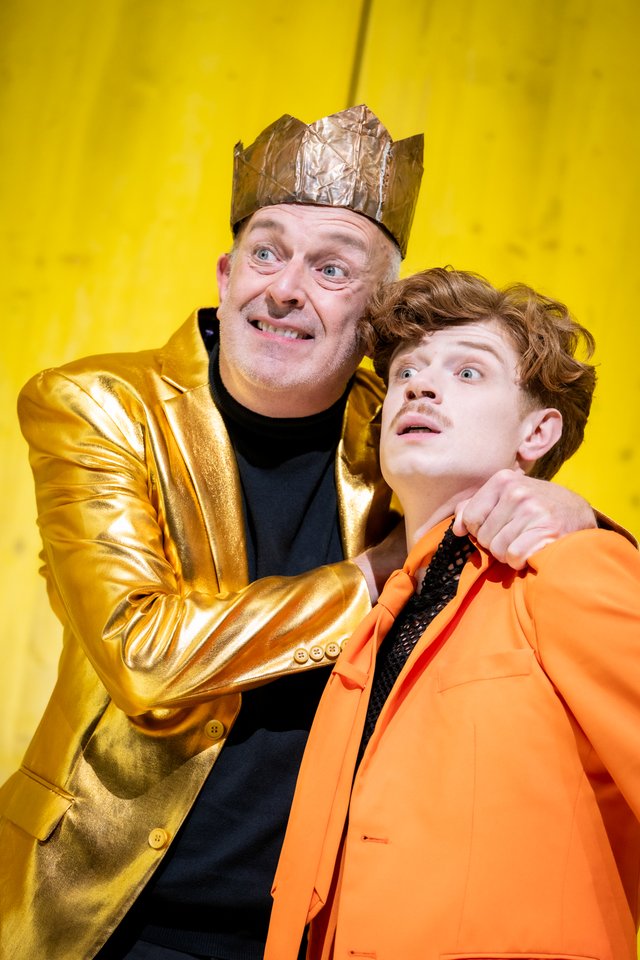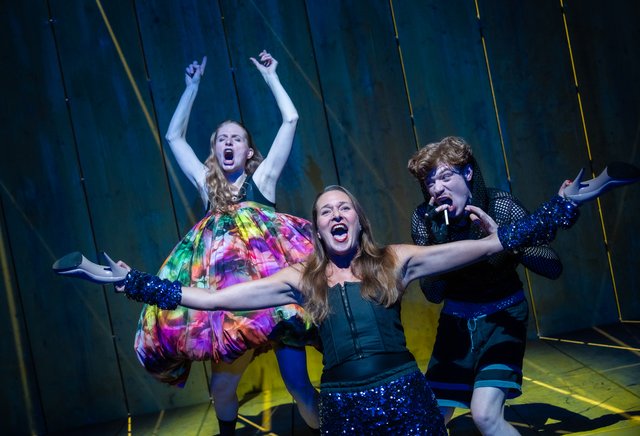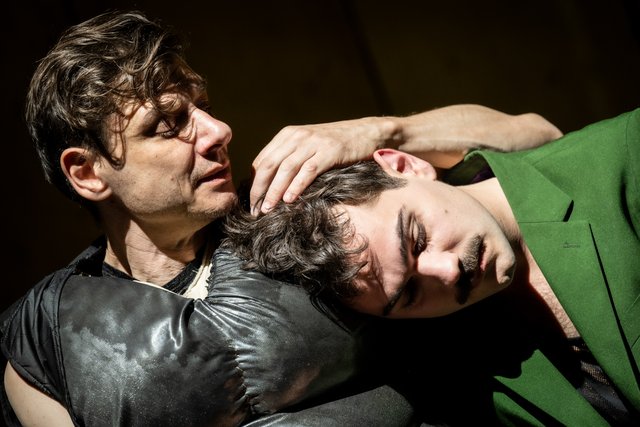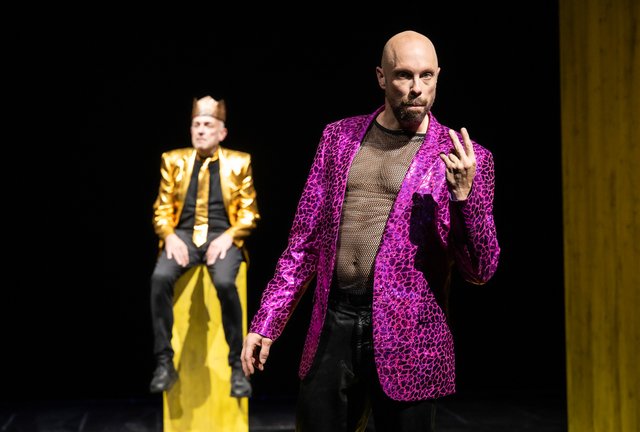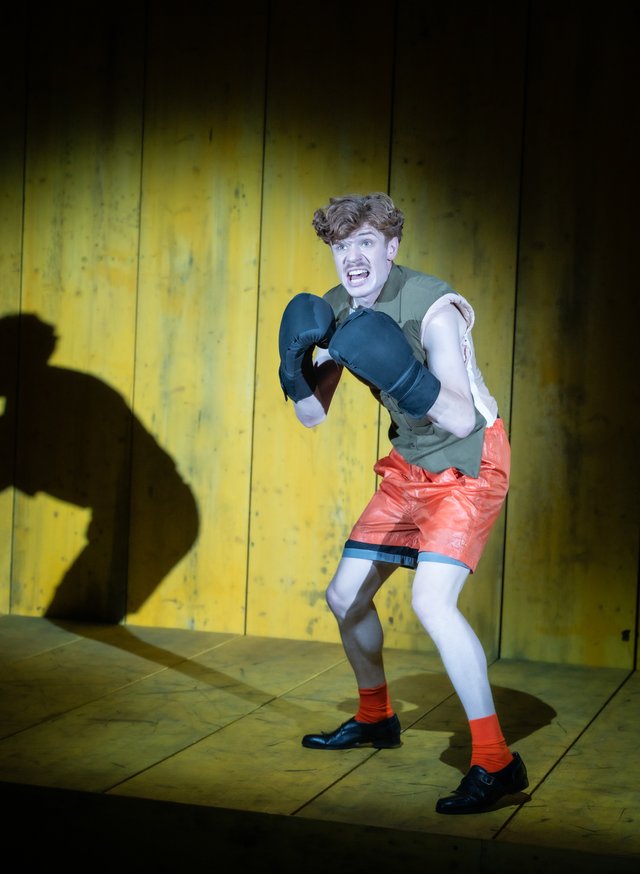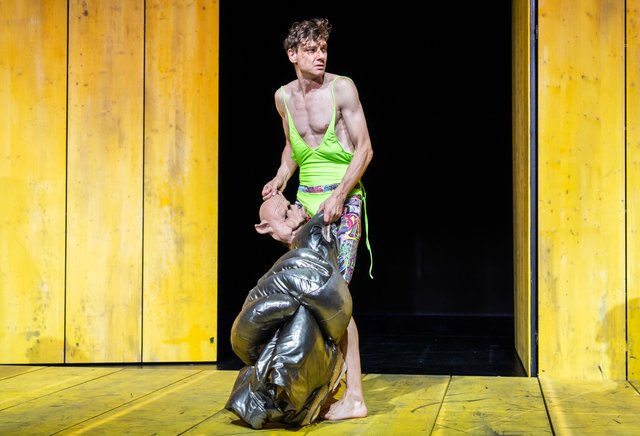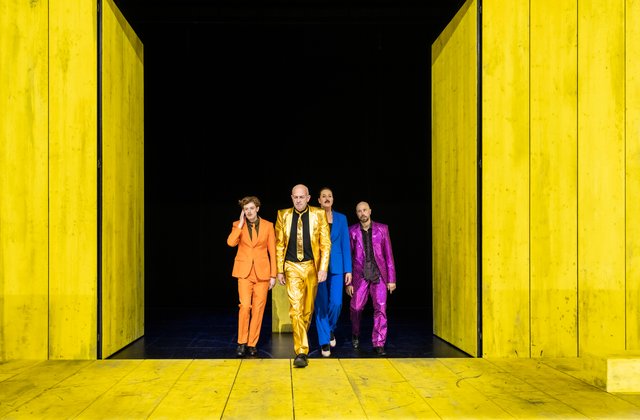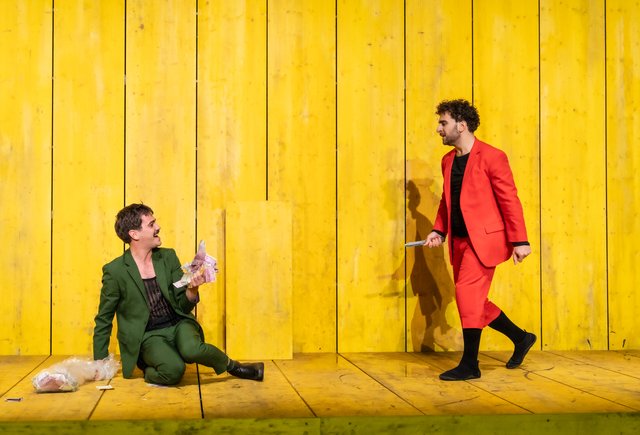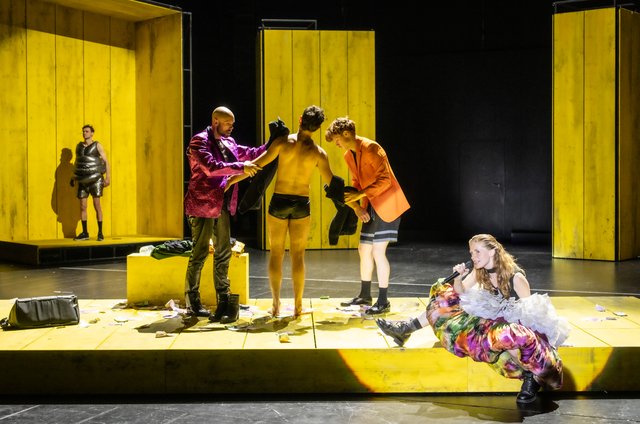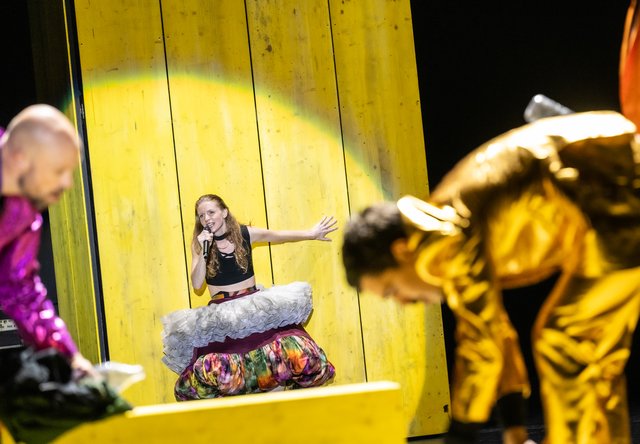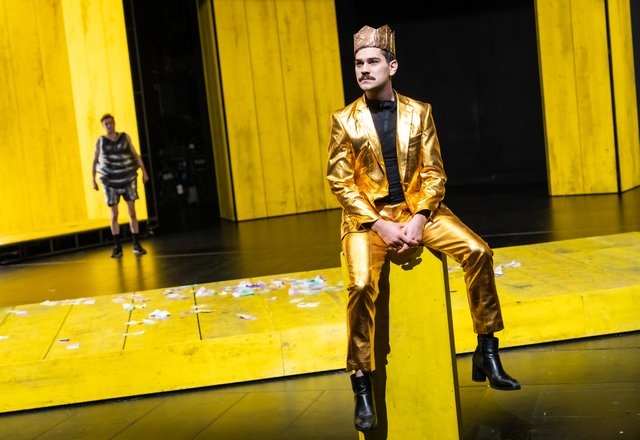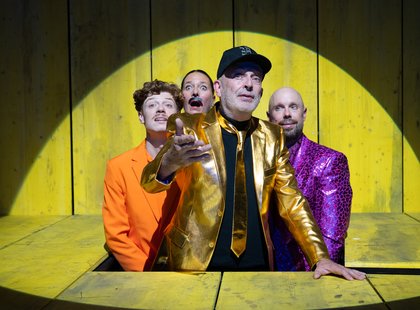Sankt Falstaff
by Ewald Palmetshofer, loosely based on Shakespeare’s KING HENRY IV
director: Tilmann Köhler
3 Stunden 30 Minuten eine PauseThe coup d’état has succeeded. Multiple crises and long-planned revolutionary activities have swept away the old government. Heinrich Bolingbrock (Shakespeare’s Henry Bolingbroke) now rules the land as a virtual king, supported by his henchmen in the centre of power. Intrigues are hatched and promises broken. It’s not even remotely about content any more: politics has degenerated into a mere show, a means to an end. In Heinrich’s state, the privileged and wealthy rule at the expense of the precarious underclass. But Heinrich has grown old and sick, and there’s no suitable successor in sight. In the shadows of this tottering realm, John Falstaff drinks in Frau Flott’s bar in a container until his situation on the margins of society becomes bearable. He is the exact opposite of the quasi-king: honest, vulnerable, likeable, open, sometimes sarcastic but never cynical, and above all capable of empathy.
This John Falstaff finds the quasi-king’s son, Harri, lying on the floor in the bar in his own vomit, and saves his life. Between the two of them a friendship develops, which could grow into something more. Despite his fascination with John, the whole thing is more of a game for Harri, who is not really able to reciprocate sincere affection. When one day an immoral offer comes to Harri from the centre of power, it sheds new light not only on the future of the state, but also on John’s relationship with Harri. Will he rise with Harri or should be rather, with his own hands, foil the propagation of illiberal rule? Even at the possible price of his own demise?
The author Ewald Palmetshofer worked on his updating of the history play for many years. The result is a highly topical piece. The play, written in verse, describes the mechanism of autocracy, the power of money, poverty and wealth, estrangement between government and citizenry. Is hope to be found anywhere in this? The play is an appeal to society’s capacity for resistance.
»Brutish politics produces brutish voters. Not the other way round. But how are we to resist the psychopolitics of extremification? Maybe we can learn from John Falstaff in his pub, because his heart is in fact larger and more incorruptible than even his inventor Shakespeare gave him credit for. Despite the toxic times [he is] utterly non-toxic, down to the last fibre.« (Ewald Palmetshofer)
Ewald Palmetshofer, born in Linz in 1978, studied theology and teaching philosophy & psychology in Vienna. The author and dramaturge was named Young Playwright of the Year in 2008. He was nominated for the Mühlheim Playwright’s Prize for hamlet ist tot. keine schwerkraft in 2008 and for the play faust hat hunger und verschluckt sich an einer grete in 2010. He won the 2015 Mühlheim Playwright’s Prize with his play die unverheiratete. The world premiere production, directed by Robert Borgmann at the Vienna Akademietheater, was also invited to the 2015 Berlin Theatertreffen, followed by further invitations to Mülheim. In 2018, Ewald Palmetshofer’s Vor Sonnenaufgang premiered at the Basel Theatre and has since been performed at more than twenty theatres. In 2019, the world premiere of die verlorenen, directed by Nora Schlocker, was the inaugural production under the artistic directorship of Andreas Beck at the Munich Residenztheater, where Ewald Palmetshofer has been working as a dramaturge since the 2019/20 season.
